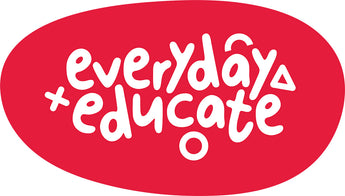As a parent or caregiver of a child with special needs, navigating the world of Individualized Education Programs (IEPs) and special education services can be overwhelming. This article aims to provide a comprehensive guide on the subject, including what IEPs are, how to qualify for special education services, the types of services available, and how to advocate for your child.
Understanding IEPs
What are IEPs?
IEPs are legal documents that outline a child's individualized education plan. These plans are designed to provide educational services tailored to the unique needs of each child with a disability. IEPs are mandated by the Individuals with Disabilities Education Act (IDEA) and are developed in collaboration with parents or caregivers, educators, and other professionals.
Who is eligible for an IEP?
To qualify for an IEP, a child must have a documented disability that adversely affects their educational performance. This can include developmental delays, learning disabilities, physical disabilities, and emotional or behavioral disorders. Children must also meet specific eligibility criteria outlined by their state's department of education.
What does an IEP include?
An IEP typically includes goals for the child's education, accommodations and modifications to the general curriculum, specialized instruction and related services, and assessments to measure progress. The IEP team, which includes parents or caregivers, teachers, and other professionals, meets regularly to review and update the child's plan.
Qualifying for Special Education Services
What are special education services?
Special education services are designed to support children with disabilities in their academic and social development. These services can include specialized instruction, assistive technology, speech and language therapy, occupational therapy, and counseling.
How do you qualify for special education services?
To qualify for special education services, a child must first be evaluated by a team of professionals, which may include a psychologist, special education teacher, speech and language therapist, and occupational therapist. The evaluation assesses the child's strengths and needs, and determines if they meet the eligibility criteria for special education services.
What is the process for obtaining special education services?
The process for obtaining special education services typically involves a referral from a parent or caregiver, followed by an evaluation conducted by the school district. If the child is found to be eligible for services, the IEP team develops an individualized education plan. The plan is reviewed and updated annually to ensure that the child's needs are being met.
Types of Special Education Services
What are the types of special education services?
The types of special education services available vary depending on the child's individual needs. Some common types of services include:
- Specialized instruction: This can include individual or small-group instruction in a specific subject or skill, such as reading or math.
- Related services: These are services that support the child's education, such as speech and language therapy, occupational therapy, and counseling.
- Assistive technology: This includes devices and equipment that help children with disabilities access the curriculum and participate in the classroom, such as computer programs, communication devices, and adaptive equipment.
- Behavioral interventions: These are strategies used to address challenging behaviors and promote positive behaviors, such as positive reinforcement and social skills training.
How are services provided?
Services can be provided in a variety of settings, including the general education classroom, a resource room, or a specialized classroom. The IEP team determines the most appropriate setting based on the child's individual needs.
Advocating for Your Child
How can parents or caregivers advocate for their child?
- Educate yourself: Learn about your child's disability, their rights under IDEA, and the services available to them. This will help you make informed decisions and effectively communicate with the IEP team.
- Communicate effectively: Be an active participant in the IEP process. Communicate your concerns, goals, and expectations clearly and respectfully. Listen to the team's feedback and ask questions if you don't understand something.
- Keep records: Keep a record of all meetings, evaluations, and correspondence related to your child's education. This can help you track their progress and advocate for their needs if necessary.
- Follow up: Stay involved in your child's education by monitoring their progress, attending meetings, and following through on recommendations. If you have concerns or issues arise, address them promptly with the IEP team.
Conclusion
Navigating the world of IEPs and special education services can be challenging, but it's essential for ensuring that children with disabilities receive the support they need to succeed. Understanding the IEP process, qualifying for special education services, knowing the types of services available, and advocating for your child are critical components of this journey. By being informed, engaged, and proactive, you can help your child reach their full potential and thrive in the classroom and beyond.



 Chat with Us
Chat with Us